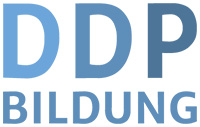
The joint project "Domain Data Protocols for Empirical Educational Research - a Contribution to Standardizing and Increasing the Quality of Research Data Management" targets the development of so-called Domain Data Protocols (DDPs) for managing empirical educational research, i.e. open standard protocols that can be referenced for data management. These will support empirical educational researchers in producing data that are quality-assured and re-usable.
The digital transformation in science opens up new opportunities for the use and storage of information and creates new types of knowledge. At the same time, new digital opportunities are leading to an increase of research data. In order to make the best possible use of the potential of this data both within and outside scientific contexts, however, there are high demands on the quality of the data. In the past quality assurance measures in the handling and curation of research data – i.e. the preparation, management, and storage of research outputs – received little attention and have therefore become central challenges for current research practice.
The BMBF funding line "Development and Testing of Curation Criteria and Quality Standards of Research Data in the Course of the Digital Transformation in the German Science System" and the joint project "Domain Data Protocols for empirical educational research" aim at supporting research groups and alliances at universities and non-university institutes in research data management. Domain Data Protocols (DDPs) will be developed for handling research data with respect to different relevant empirical educational research methods, as well as guidelines for calculating costs for research data curation. Researchers in the field of empirical educational research will be able to use the DDPs in terms of open template standard protocols that can be referenced, in order to produce quality-assured and re-usable data. For this purpose, the protocols are tailored to the specific conditions of the data collection methods that are relevant in empirical educational research (e.g. cross-sectional and longitudinal studies, performance indicators, different survey modes, qualitative studies). The respective research processes are considered together with their methodological, organizational and technical specificities and the specific conditions of data collection, data sharing and data re-usage. The developed DDPs will moreover serve to determine benchmarks for estimating the costs of research data curation according to the type and size of the study or the research project.
Within the joint project the DZHW is mainly responsible for DDPs that take into account the special requirements of longitudinal surveys and computer-based surveys.
Cooperative partners:
- German Institute for Adult Education, Leibniz Centre for Lifelong Learning (DIE)
- German Institute for Economic Research (DIW) / German Socio-Economic Panel (SOEP)
- German Youth Institute (DJI)
- German Centre for Higher Education Research and Science Studies (DZHW)
- GESIS Leibniz Institute for the Social Sciences (Management of the joint project)
- Institute for Educational Quality Improvement (IQB)
- Leibniz Institute for Research Information and Education (DIPF)
- Leibniz Institute for Astrophysics Potsdam (AIP)
- Leibniz Institute for Educational Trajectories (LIfBi)
- Leibniz Institute for Psychology Information (ZPID)
- Qualiservice, University Bremen
- Center for Teacher Training and Education Research (ZeLB), University Potsdam


